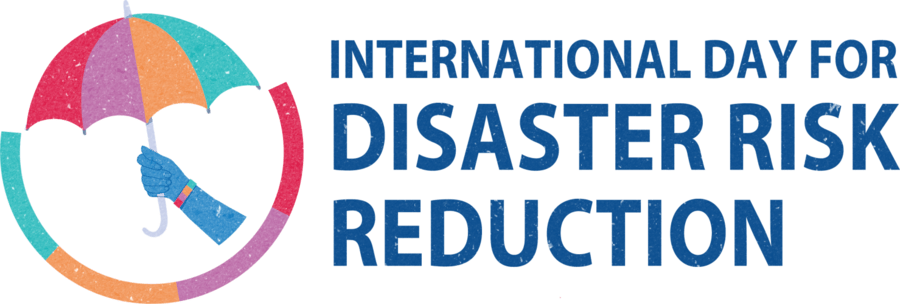Ugnayan Series: Linking Partners and Communities toward Urban Governance
In celebration of the International Day for Disaster Risk Reduction, we at the Department of the Interior and Local Government – National Capital Region will be launching the “Ugnayan Series” (Ugnayan is a Filipino word for “linkage”), which aims to establish strong collaboration and linkage among local stakeholders and government and non-government organizations in building knowledge and awareness of pressing issues such as disasters and climate change in the National Capital Region.
The topics that will be discussed are:
Session 1: Understanding Risk and Resilience
This session aims to introduce key concepts and issues on disaster risk in all its dimensions of hazards, exposures, and vulnerabilities, highlighting the importance of prioritizing DRR as a cross-cutting element in achieving the Sustainable Development Goals (SDGs) in the national and local context. The participants, mainly members of civil society organizations, will be grouped for a workshop. During the workshop, they will be asked to identify hazards, exposures, and vulnerabilities in different scenarios and explore ways to integrate DRR actions into the local plans of their respective local government units. Participants will also have an opportunity to share their appreciation and understanding of the role of CSOs in DRR during the open discussion.
Specific questions addressed in this session are as follows:
- What are the components of disaster risk and their interlinkages?
- What are the facets of resilience and its relevance to climate change, disaster risk reduction, and sustainable development?
- How can civil society organizations and local stakeholders contribute to resilience-building efforts?
Session 2: Enhancing Risk Communication and Community Engagement
In the context of DRR, effective communication is a two-way street; local officials and key actors, including CSOs, must deliver clear-cut messages while actively listening and discerning how the people receive and understand their messages. Hence, this session taps into the fundamental concepts and emerging practices of effective risk communication, mindful of the psychological, social, cultural, and political factors influencing how people comprehend, perceive, and react to risk. As an integral part of the risk reduction efforts, participants of this session will be able to learn how to apply crucial tools, strategies, and practices in building knowledge and communicating disaster risk reduction information, targeting non-expert audiences and the public.
Specific questions addressed in this session are as follows:
- What are the fundamental concepts and emerging practices of effective risk communication?
- How can decision-makers, organizations, and DRR practitioners utilize risk communication tools and strategies in influencing community mindset and actions?
- What communication gaps and challenges impede DRR efforts on the ground, and how can these be addressed?
Session 3: Integrating Gender Equality, Disability, and Social Inclusion (GEDSI) in Disaster Risk Reduction
Disasters do not discriminate, but people and systems do. With our varying socio-economic conditions, disasters lead to different outcomes, most inevitably for the vulnerable and marginalized groups in our society, such as low-income women, persons with disabilities, older persons, people of diverse sexual orientation and gender identities, and indigenous peoples/ethnic minorities. In this context, this session aims to present the framework and key concepts of GEDSI to guide local leaders and actors in ensuring that vulnerable and marginalized groups are prioritized and actively involved in the DRR planning and implementation of local government units. Participants will also be able to appreciate the actual and potential contributions of inclusive leadership to building community resilience.
Specific questions addressed in this session are as follows:
- What are the concepts and elements of GEDSI, and how are these relevant to DRR?
- How can decision-makers and local stakeholders integrate GEDSI into their DRR plans, programs, and budget?
- What are the existing conditions in local governance that hamper the active participation of vulnerable and marginalized groups in the DRR efforts of local government units?
Session 4: Innovations and Challenges in Disaster Risk Reduction
With the record-breaking frequency and severity of climate and natural hazard-induced disasters, economic and human losses are one of the direct consequences that DRR efforts confront. Accordingly, adopting a more proactive and cost-effective approach to planning and budgeting for DRR programs is essential, considering the limited technical and financial resources of local government units and civil society organizations. In this regard, this session delves into innovative technologies and digital tools, particularly open access and big data analytics, as well as DRR financing mechanisms, which can contribute to the resilience-building efforts of local government units. Moreover, this session will leverage DRR and climate financing mechanisms and the potential of digital innovations designed to guide decision-makers and local actors in risk-proofing the spatial and development plans and the fiscal strategies of local government units.
Specific questions addressed in this session are as follows:
- What digital tools are accessible to decision-makers, DRR practitioners, and the public, and how can these contribute to resilience planning?
- What financing mechanisms and resources can local government units tap to implement resilience actions?
- What innovations and emerging practices of civil society organizations effectively accelerate local DRR efforts?
At least 600 local leaders, DRR practitioners, and representatives of local institutions and civil society organizations in Metro Manila are expected to participate in the Series. Moreover, the Ugnayan Series is one of the components of our project, Upscaling Plans for Resilient Urban Governance (UPSURGE), which aims to enhance the knowledge and capacities of our local government units in formulating and implementing risk-informed local development plans.
